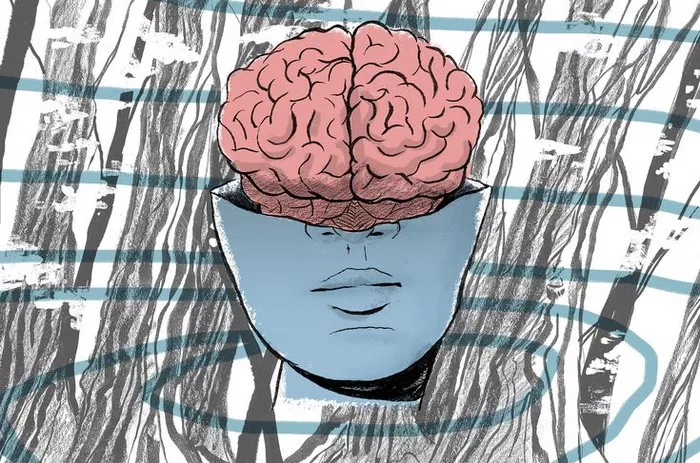Obsessive-Compulsive Disorder (OCD) is a complex psychological condition characterized by intrusive thoughts (obsessions) and repetitive behaviors (compulsions). Typically, OCD develops gradually and is diagnosed in early adulthood. However, there are instances where individuals experience a sudden onset of symptoms, which can be particularly distressing and confusing for the affected person and their loved ones. This article aims to explore the potential causes and mechanisms behind the sudden emergence of OCD, drawing on current research and clinical insights.
Obsessive-Compulsive Disorder
Before delving into the causes of sudden OCD, it is important to understand what OCD is and how it typically presents. OCD involves persistent, unwanted thoughts and fears (obsessions) that lead to compulsive behaviors performed in an attempt to alleviate the distress caused by these thoughts. Common obsessions include fears of contamination, a need for orderliness, and taboo thoughts about sex, harm, or religion. Compulsions might involve washing, checking, or counting rituals that can significantly interfere with an individual’s daily activities and quality of life.
Clinical Profile of OCD
Typical Onset and Progression
OCD generally has a gradual onset, with individuals often experiencing increasing intensity of symptoms over time. The disorder is typically recognized in individuals during their adolescence or early adult years, but earlier childhood onset is also possible.
The Phenomenon of Sudden Onset OCD
In contrast to the more common gradual development of OCD, sudden onset OCD appears abruptly, with symptoms developing intensely and rapidly. This rapid development can be alarming, significantly impacting functioning almost from the outset.
Defining Sudden Onset OCD
Sudden onset OCD is characterized by the rapid emergence of obsessive-compulsive symptoms. This presentation can occur within days or weeks and is a departure from the individual’s usual behavior and personality.
Potential Causes of Sudden Onset OCD
Understanding what can trigger such a rapid development of OCD symptoms is crucial for diagnosis and treatment. The causes can vary widely, ranging from biological factors to environmental triggers.
Infectious Agents and Pediatric Autoimmune Neuropsychiatric Disorders Associated with Streptococcal Infections (PANDAS)
One of the most discussed theories in the context of sudden onset OCD concerns Pediatric Autoimmune Neuropsychiatric Disorders Associated with Streptococcal infections (PANDAS). PANDAS is a hypothesis that attributes the sudden onset of OCD (or tic disorders) in children to a post-streptococcal autoimmune process. According to this hypothesis, the antibodies produced to fight a streptococcal infection mistakenly target the brain, leading to OCD symptoms.
Other Infections and Autoimmune Responses
Beyond streptococcal infections, other infections and autoimmune mechanisms may also trigger sudden OCD symptoms. Researchers are exploring how viral infections like the flu or physical conditions that provoke an immune response could potentially lead to similar neuropsychiatric symptoms through mechanisms akin to those proposed in PANDAS.
Genetic Susceptibility
Genetic factors play a significant role in the development of OCD. While the presence of specific genes might not directly cause OCD, they can make individuals more susceptible to environmental triggers that precipitate the disorder. In cases of sudden onset, a latent genetic predisposition might interact with environmental factors to trigger rapid symptom development.
Neurological Changes
Sudden changes in brain chemistry or structure, possibly due to trauma, infection, or other acute neurological events, can also lead to the abrupt appearance of OCD symptoms. Areas of the brain, particularly those involved in regulating behavior and executive function like the frontal cortex and basal ganglia, when altered, might manifest in the obsessive-compulsive behaviors seen in OCD.
Environmental Stressors
Severe stress or traumatic events can precipitate the sudden onset of mental health disorders, including OCD. For example, a significant life change such as the death of a loved one, divorce, or sudden financial hardship might trigger OCD in predisposed individuals.
Diagnosis and Treatment of Sudden Onset OCD
Challenges in Diagnosis
Diagnosing sudden onset OCD involves a thorough clinical evaluation to rule out other neurological and psychiatric conditions. Given its rapid development, it is crucial to consider a broad range of differential diagnoses, including PANDAS, other autoimmune conditions, and acute neurological disorders.
Treatment Approaches
Treatment for sudden onset OCD typically follows standard OCD treatment protocols but may also include interventions aimed at addressing the specific causes. This might involve:
Cognitive Behavioral Therapy (CBT): Especially effective for treating OCD, focusing on changing the thought patterns and behaviors associated with the obsessions and compulsions.
Medication: SSRIs (selective serotonin reuptake inhibitors) are commonly prescribed to help manage symptoms.
Treatment of Underlying Conditions: If an infection or autoimmune issue is suspected, appropriate medical treatments will be necessary alongside psychiatric care.
Supportive Therapies: Family therapy and educational interventions can also be beneficial, particularly for children and adolescents affected by sudden onset OCD.
Conclusion
The sudden onset of OCD is a distressing phenomenon that can dramatically affect an individual’s life. Understanding the potential causes—from autoimmune responses triggered by infections to severe psychological stress—can help in developing effective treatment plans. Early diagnosis and comprehensive treatment are crucial for managing the disorder and improving the quality of life for those affected. Continued research into the sudden onset of OCD will hopefully lead to more effective interventions and a better understanding of this complex disorder.
[inline_related_posts title=”You Might Be Interested In” title_align=”left” style=”list” number=”6″ align=”none” ids=”8420,8423,8426″ by=”categories” orderby=”rand” order=”DESC” hide_thumb=”no” thumb_right=”no” views=”no” date=”yes” grid_columns=”2″ post_type=”” tax=””]
































